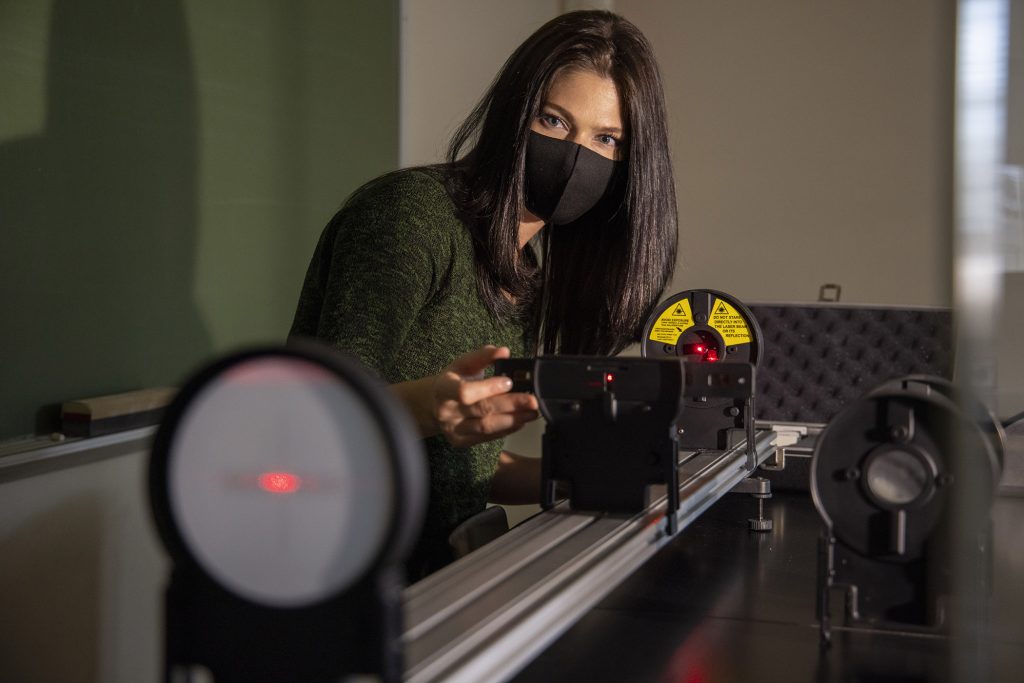When she started her stint as head teaching assistant for the University of Georgia’s Physics and Astronomy Department in August 2019, Lauren Sgro’s life was pretty well mapped out. The Ph.D. candidate had time to work on her dissertation – concerning dust around red dwarfs – while keeping up with head TA  duties, such as teaching the new TAs how to do their once-a-week labs and helping anyone with questions. Then the pandemic hit.
duties, such as teaching the new TAs how to do their once-a-week labs and helping anyone with questions. Then the pandemic hit.
“After COVID-19, the position took on a totally different level of responsibility. It’s been a great learning experience, but it has changed a whole lot about my job,” said Sgro.
Part of her new normal involved figuring out ways to hold labs for introductory physics students who were studying mechanics, electricity, magnetism and optics. The labs are usually very hands-on and require equipment like lasers or special air tracks to create a frictionless surface. Sgro couldn’t very well start a Zoom class by instructing students to gather their household lasers.
But Sgro is a scientist, so she started experimenting. “We went through all of the options of ‘How are we going to make this work?’ When none of the other ways worked,” laughed Sgro, “we settled on making an asynchronous component to a hybrid lab course.” For the current semester, they’ve split lab courses into two groups, each group trading off weeks between online and in-person classes.

Sgro filmed the experiments on her phone, not only capturing the various physics concepts, but also her penchant for changing up her look. “I probably had five different hair colors over the course of the videos,” she said.
Although online labs aren’t optimal, the presentations may get a second life as supplemental material for in-person classes. “The students actually really benefit from having our presentations,” said Sgro. “Physics is hard, and when somebody’s trying to follow the math along with you while you’re talking, it can sometimes be too much to take in at once.”
Her completely “new” job has delayed her graduation, but Sgro cheerfully did what she felt she needed to do. “Even though I came here to get a degree and do a dissertation, I felt like I had a responsibility to my peers, my colleagues and also to my students, and I tried to put them first,” she said. “I failed quite often, but remembering that I’m doing this for them made it a whole lot easier to get through all this.”
Plus she’s doing what she loves. “I really like seeing people get excited about science,” said Sgro, who has a forthcoming internship at Sky and Telescope magazine. “My favorite part of my job is when I’m teaching undergraduates and I see that lightbulb go off. As long as I can get even one person to look up and around them instead of at their phone, that’s all that really matters.”


